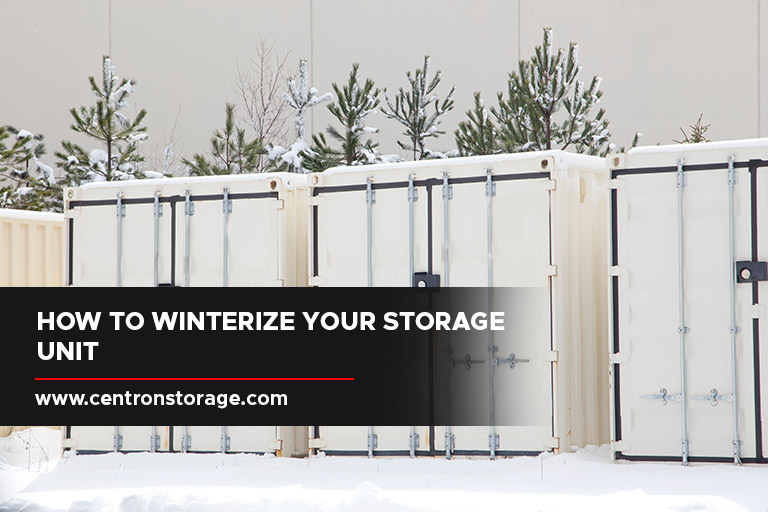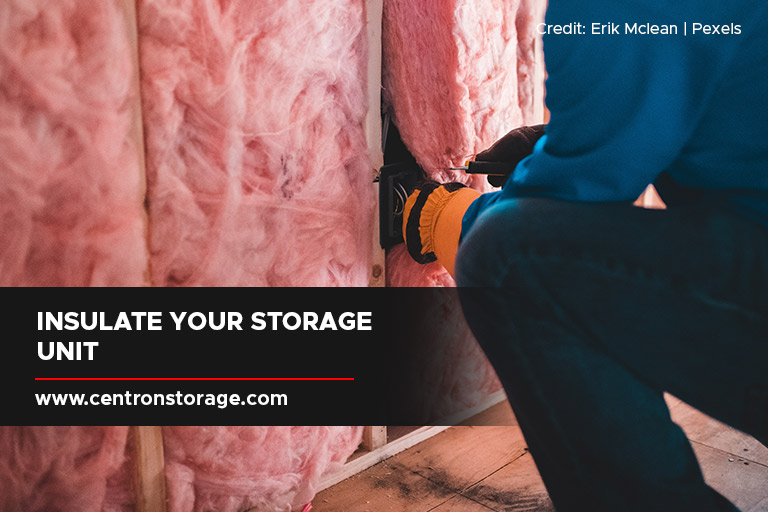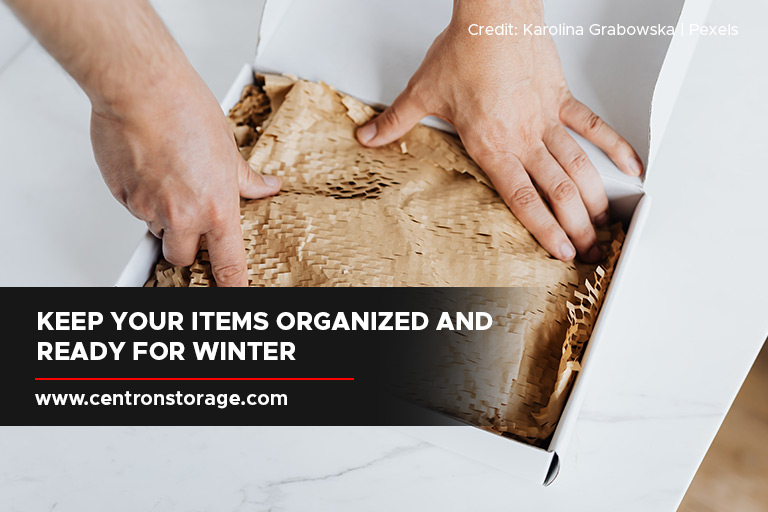How to Winterize Your Storage Unit

With the winter season here, it’s time to put away your patio furniture, ATV, and beach gear in favour of your seasonal holiday decorations. This change is a great chance for you to learn how to prepare for winter storage. A storage unit requires different precautions and preparations for every season. In the summer, the main challenges are heat and humidity. Whereas in the winter, you must be ready for rain and drastic temperature drops.
The secret to ensuring that your self-storage facility survives the winter is planning. Preparation for winter storage includes securing winter storage containers and knowing how to insulate storage units. Ideally, you should start preparing for winter concerns in the early fall and finish by October, at the latest.
Here are the top winter storage ideas to help you keep your items in great condition through the winter:
- Do a Pre-Winter Check
Make a list of everything you have in storage. If you have packed your unit properly, labelling the boxes, bags, and shelving units you have will allow you to identify which objects might need your attention.
This is an excellent time to replace any boxes or storage containers that appear to be worn out or damaged. Too much humidity might cause mould to grow in the storage unit. It is easier to prevent this from happening than to fix the damage that has already been done.
- Arrange Your Belongings
Getting your belongings off the ground is one of the best things you can do to get your things ready for the coldest of nights. Your most priceless belongings can be elevated using wooden pallets and shelves. Additionally, make sure nothing is forced up against the wall where the cold air is strongest. Finally, gather some wool blankets or furniture pads to protect your belongings.
- Use Insulation

It is always a good idea to use insulation to protect your belongings during harsh winter conditions. Ideal materials for bedding include breathable cotton blankets and towels. Avoid using vinyl and plastic covers because they may retain moisture.
- Get an All-Weather Lock
The safety of your belongings is only as good as the lock you use. The majority of storage facilities offer locks for purchase or give you a standard lock for your unit. These are usually enough in normal temperatures, but they might not last in really cold ones.
When the temperature drops, some locks will freeze. Someone else may be able to gain access to your unit by breaking the brittle metal. On the other hand, the cold could also damage the internal mechanism, making it impossible for anyone, including you, to enter. At the same time, bad weather might affect access control keypads. Keypads with rubber buttons and touch screens are particularly prone to damage. If possible, switch to a keypad with metal buttons and use weather protection to prevent sticking.
- Use Climate-Controlled Units
A climate-controlled storage unit is your best option if you want to keep your belongings safe. Climate-controlled storage spaces are indoors and give renters the ability to control the temperature and humidity to meet the needs of their belongings. Even if you are unable to alter the temperature settings within your specific unit, the facility should be using a temperature that is ideal for most items. Your belongings will be protected from extreme cold during the winter, intense heat during the summer, and humidity during the rainy season.
Ultimately, you do not have to weatherize as much if you move up to a climate-controlled facility. Naturally, you still want to keep your unit tidy and organized, but you will not have to worry about many of the issues that are common in regular storage facilities.
Prepare your Stuff

Knowing what is in your storage unit is the key to organizing it. This way, you can decide what will survive storage, what should not be put in a storage unit, and what you should take home with you until the weather clears. The following are some delicate items that need extra care:
- Memorabilia
You cannot afford to be negligent of your storage unit safety if you use it to keep delicate items with financial, legal, or sentimental value. Important documents, photos, trading cards, and other similar items should be carefully sealed in plastic.
- Liquid
When liquid freezes, it expands, which might harm other things in your storage unit. Cover items with liquid with a thick layer of wool or similar material to keep the liquid warm. Additionally, you might want to lay down a tarp and relocate them to a corner, away from the rest of your possessions. If their containers crack, the liquid will not spill onto anything else you possess.
- Electronics
Batteries have liquid inside the battery cells, which can freeze, break, and expand. Always remember to remove the batteries from any equipment. Electronics should ideally be kept in a tight box with lots of packing materials. Use the original packaging, if you have it, to safeguard these things.
- Furniture
Before the winter weather arrives, make sure any wooden furniture you are storing is dry. To help prevent mould and mildew, wrap the wood pieces with plastic wrap or a thick blanket.
With winter fast approaching, the time to make a storage investment is now. If you are from North York and are looking for “storage near me,” Centron Self Storage is the one for you. We offer a wide range of sizes and features to match your storage needs. Contact us at (647) 557-7378 now.

